Master of Science [M.S] (Spatial Planning)
₹17.1 L/Yr
Tuition Fees
| Year | 1st Year Fees |
|---|---|
| Tuition Fees | ₹1714280 (EUR 17000) |
Previous Year Tuition Fees
| Year | 1st Year Fees |
|---|---|
| 2021 | ₹265108 (EUR 2629) |
The subject areas of this programme correspond to the Departments of the Faculty, and to the research interests and activities within each, including civil, structural, building engineering, architectural, building and conservation science, built heritage, architectural and urban design, planning and construction management, and interdisciplinary themes, in which guidance and supervision can be offered, and subject to the availability of resources as determined by the Faculty Board.
Students typically follow a short directed reading component, deliver a presentation related to the research, and embark on the preparation of a dissertation, based on work of an advanced or original nature undertaken by them.
You can choose a specialization that best reflects your passion for spatial planning:
- Cities, Water and Climate Change
Gain all necessary knowledge and skills for working on the nexus between urban planning, water, and environmental management. - European Spatial and Environmental Planning
Become a spatial planner who understands EU policies, can cooperate with planners across borders and engages with other sectors like the environment and economic development. - Planning, Land and Real Estate Development
Discover new perspectives on urban development which you can use in a future role as city developer, either in the public or private sector. - Urban and Regional Mobility
Look into different integrated mobility systems or transport modes at different spatial scales. Discover new practices and strategies to provide innovative mobility solutions.
Eligibility & Entry Requirement
Admission Requirement
- In order to get admission to this Master's you will need a completed Bachelor’s degree from a spatially-oriented discipline, such as spatial planning, human geography or environment studies.
- Because of the academic nature of this programme, College require all students to have basic training in research processes, e.g. research design and data analysis.
Language Requirement
- Has successfully completed a Bachelor's programme that was taught completely in the English language in one of the following countries: EU/EEA-countries, Australia, Canada, New Zealand, United States of America.
- A TOEFL score of 90, with subscores not lower than 18
- An IELTS score of 6.5, with subscores not lower than 6.0
- Cambridge Certificate of Advanced English (CAE) or Certificate of Proficiency in English (CPE) with a mark of C or higher.

Overall 272 out of 1503 in Global Ranking
Nearest Ranked Colleges
Do you think the Rankings are wrong ? Report Here
TOP Scholarships
| Scholarship name | Award amount | Eligibility |
|---|---|---|
| - | - | - |
| - | - | - |
| - | - | - |
Key Resources for Your Study Abroad Journey
Course Guides
Career and Placement after Course
- Historic buildings inspector/conservation officer.
- Housing manager/officer.
- Local government officer.
- Town planner.
- Transport planner.
- Urban designer.
Scholarship Grants & Financial Aids
| Name | Scholarship Per Student | Level of Study | Type | |
|---|---|---|---|---|
| Radboud Scholarship Programme | Scholarship per studentVariable Amount | Level Of StudyMaster | TypeCollege-Specific | |
| University of Twente Holland Scholarship | Scholarship per student₹ 5.5 L/Yr$5,419 | Level Of StudyBachelor | TypeMerit-Based | |
| World Citizen Talent Scholarship | Scholarship per student₹ 5.5 L/Yr$5,432 | Level Of StudyMaster | TypeCollege-Specific | |
| Amsterdam Merit Scholarship | Scholarship per studentVariable Amount | Level Of StudyMaster | TypeMerit-Based | |
| VU Fellowship Programme | Scholarship per studentVariable Amount | Level Of StudyMaster | TypeMerit-Based | |
| Axol Science Scholarship | Scholarship per student₹ 2 L/Yr$2,000 | Level Of StudyBachelor | TypeCompany-Sponsored |
Similar Programs
| Program | Important Date | Total Fees | Median Exams Score | Action |
|---|---|---|---|---|
-- | INR 16.1 L/Yr EUR 16,000 /Yr |
| ||
-- | INR 13.2 L/Yr EUR 13,080 /Yr |
| ||
-- | INR 14.7 L/Yr EUR 14,570 /Yr |
Do you think the Dates are wrong ? Report Here
Similar Colleges
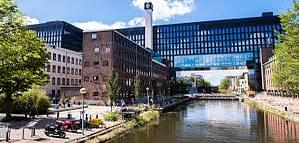

University of Amsterdam
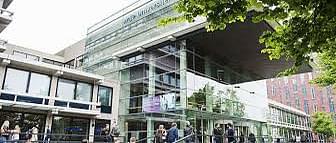

Vrije Universiteit Amsterdam


Delft University of Technology


Eindhoven University of Technology
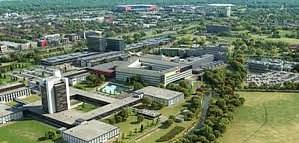

University of Twente
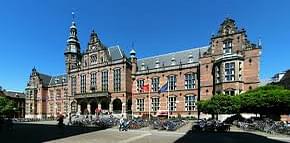

University of Groningen
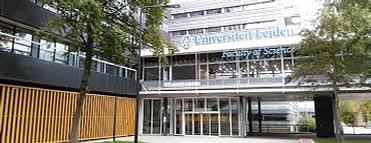

Leiden University


Maastricht University

























Comments